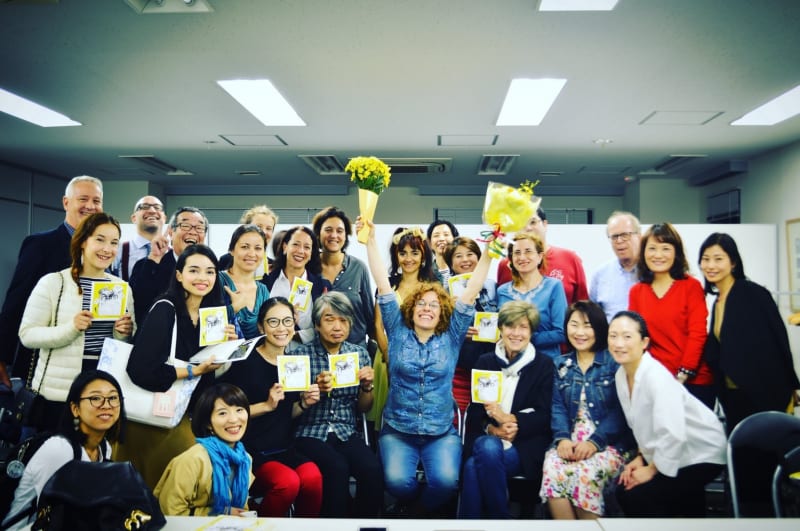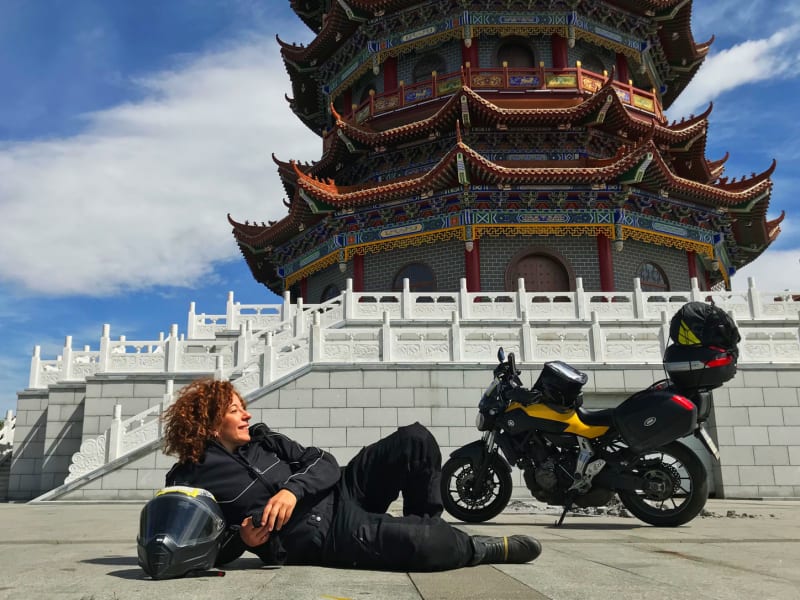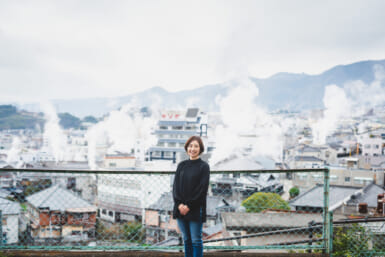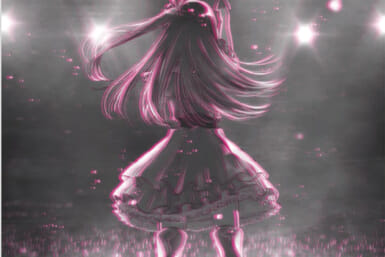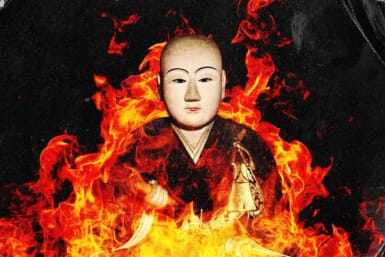In June 2018, Rosaria Iazetta, an Italian artist and professor of sculpture at the Academy of Fine Arts of Naples in Italy, packed her bags and set off on her yellow motorcycle with the aim of biking all the way from Italy to Japan.
But it wasn’t purely a vacation. Over the course of four months, she would travel through 11 countries and 45 cities, interviewing women who are active in cultural or social arts; who are helping to bring about change in their communities; who have “realized a dream or defended a right.” Forming part of her project named Yellow Horse Evolution, these interviews will be used to create a documentary, and to help create cohesion between communities of women around the world.
The name Yellow Horse Evolution was inspired by the infamous short-legged but powerful breed of horse in Japan’s Iwate Prefecture, which never lets its shortcomings get in the way of its determined gallop. Yellow refers to the color of her motorbike and, she explains, “I specifically chose evolution, not revolution, [because women need] to keep going.” To keep going, to never give up: this is the overwhelming theme of Iazetta’s project.
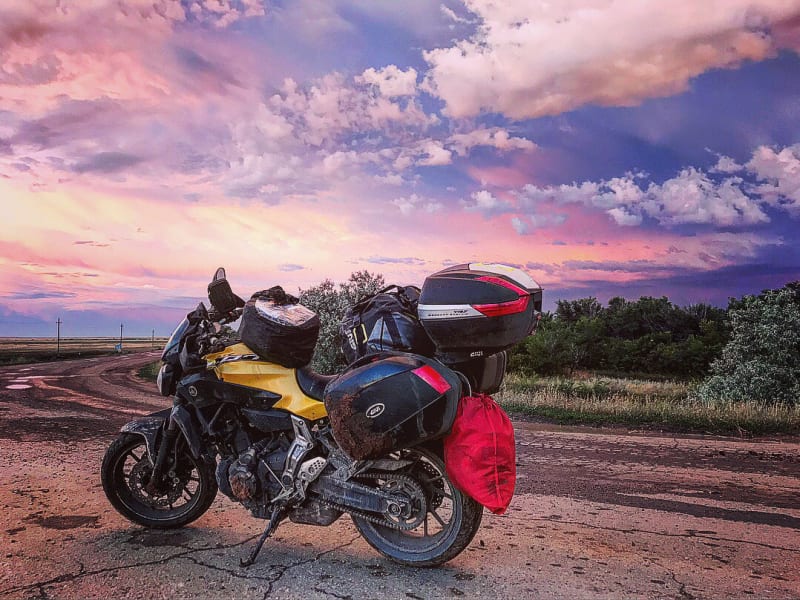
Rosaria’s trusty companion during her four-month journey from Italy to Japan
On October 12, Rosaria arrived in Tokyo after her arduous journey, and recounted her experiences, challenges and most inspiring moments during a press conference at the Italian Chamber of Commerce – which sponsored and supported her trip as part of the “Italia, amore mio!” series. With a full head of ginger curls, dressed in blue jeans and combat boots, her shirt sleeves rolled up to her elbows, she strode into the room with a spring in her step, full of energy and wearing a wide smile. The audience welcomed her with animated applause and, in response, she held her arms up high, waving to demonstrate her delight and gratitude.
Of course, the first big question everyone wanted to ask was what inspired the artist to make such a trip? The idea for the project came about in the summer of 2017, when Rosaria relocated from Italy to work in Iwate Prefecture. While there, she realized how similar the social issues in Japan were to those in Italy despite the countries being worlds apart geographically and culturally. She began to research the social status and wellbeing of women living between Naples and Morioka in Iwate Prefecture, two points antipodal to each other and two “extreme cultural representations of the cultural realm.”
Also, Rosaria loves a good road trip. Many of her relatives, friends and students believed it was an impossible and perilous trip, but this was precisely why Rosaria took on the challenge. “I was sure that this dangerous idea of the world is not that true. So why not try? I wanted to try to do this documentary about women just by myself; no planes, trucks or train.” And that is precisely what she did, motorbiking through Italy, Slovenia, Croatia, Bosnia and Herzegovina, Serbia, Hungary, Ukraine, Russia, Kazakhstan, Mongolia, China, South Korea and finally Japan. The only time she didn’t travel by bike was when crossing from Europe to Asia and then to South Korea by boat.
Of course, many of the concerns expressed by her friends, relatives and students were a reality. Things like having the wrong model of motorbike, the high incidence of car crashes in Russia, the war in Ukraine, the threat of terrorist attacks, Mongolia’s absence of roads (not to mention the cold nights). However, she found herself pleasantly surprised by the people she met along the way. In Russia, she “never felt like [she] met someone to be worried or scared about.” When she ran out of money in Russia, a kind family took her in, and, to repay them, Rosaria cooked a meal for them.
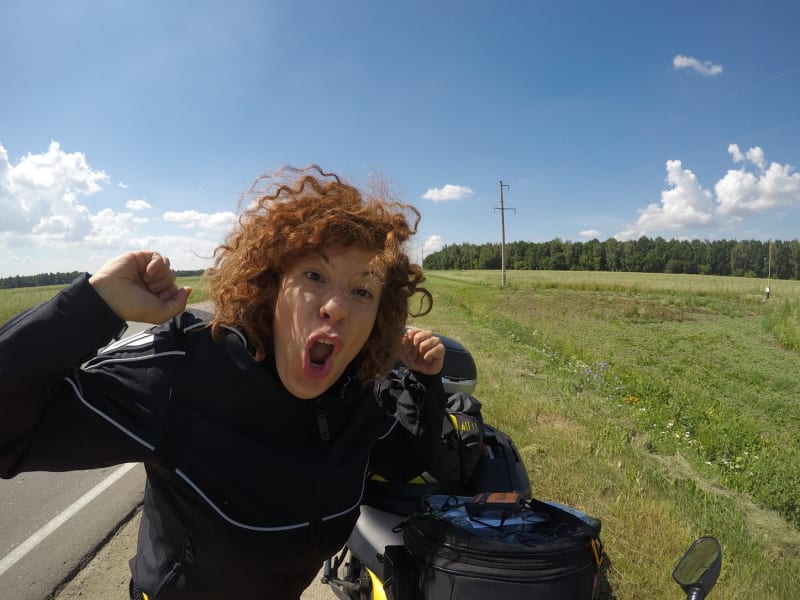
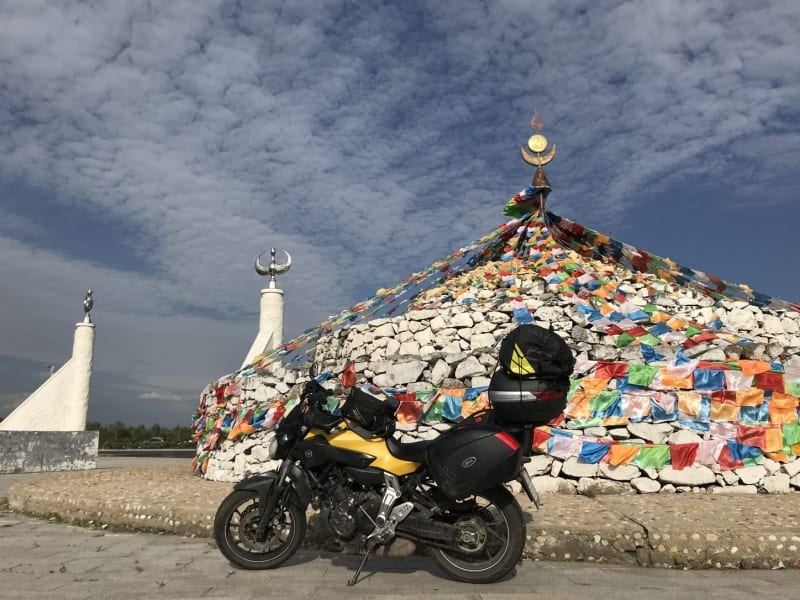
As for the women Rosaria chose to interview, she wanted to include the stories of those who have persevered despite their disadvantageous situation. In one case, she interviewed the director of an art university in Kazakhstan who had found a way to survive underground during a time when artists were forbidden to practice. Another interview was with an Italian journalist who wrote a book on the Italian mafia. “The journalist still lives under police protection to this day,” says Rosaria.
As for one of the women who deeply inspired her, Rosaria mentions Olinka Vištica, a TV producer in Croatia who founded the Museum of Broken Relationships with the objective of transforming the end of love into art.
Rosaria’s interviews didn’t always go smoothly. Some women were defensive at first, as they believed Rosaria’s project suggested they were oppressed. “One time I interviewed an activist in South Korea and she started to talk in a good way about men. She was so proud about her country that she didn’t want to tell the truth,” says Rosaria. “In Mongolia, some women were aggressive. They said things to me like, ‘Here, it’s very progressive, I don’t understand why you want to have an interview’.”
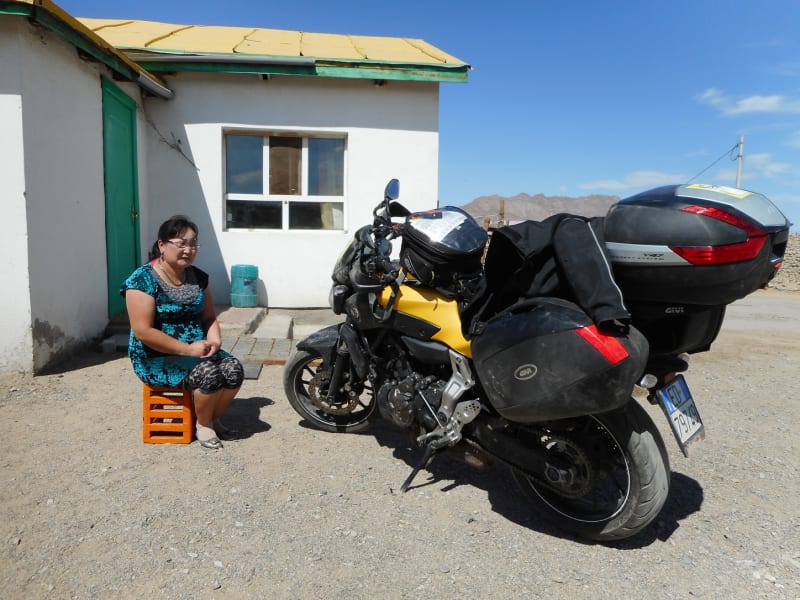
When asked about her most challenging moments, she says, “Times when I experienced technical problems; when I couldn’t find food and couldn’t have hot water, days when I didn’t have any gasoline left and had to push my motorbike by myself, times where I fell off my motorbike on dangerous roads, waiting in Mongolia for a Chinese visa… This was when I faced the real problems. When something goes wrong, you become incredibly tired but you must realize that you can’t change lost time.”
To the question of whether she ever felt in danger or threatened on the trip, she responds with: “More than the terrorist threat and everything else, I didn’t feel safe in Mongolia. Nothing happened but somehow I felt the pressure of men. For them, I was probably too strong and too strange on a motorbike.”
But ultimately, she says, “the first enemy is yourself” when you’re riddled with worry and stop yourself from moving forward. What kept her going was the motivation of the women she interviewed, as well as the sense of responsibility she feels toward her students: “How can I teach my students to have courage if I don’t have it myself? Everybody is fighting so I must continue fighting too.”
You can find out more about Rosaria Iazzetta and her work on her www.rosariaiazzetta.com
